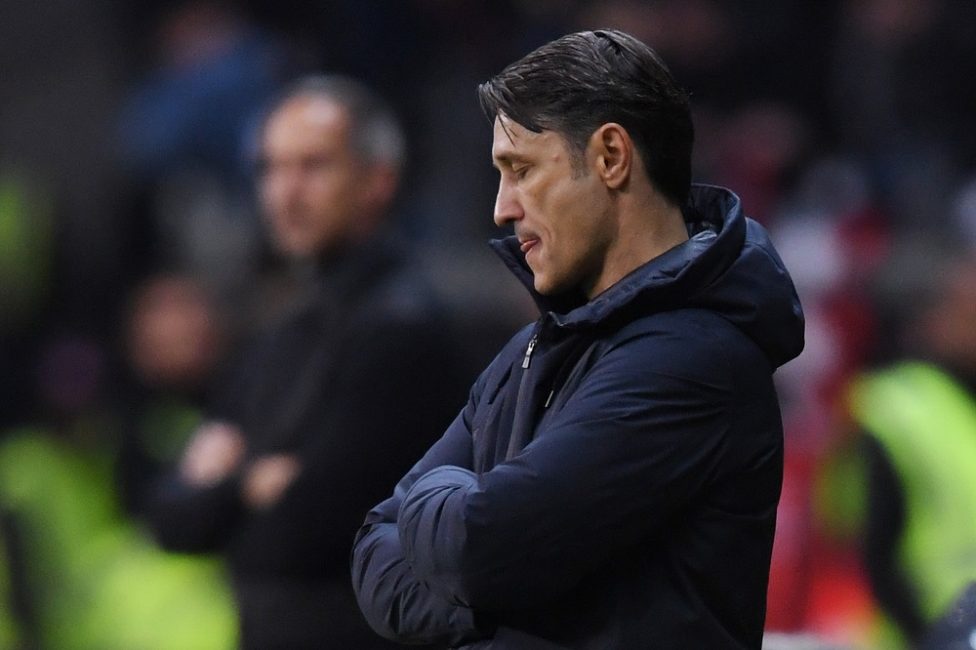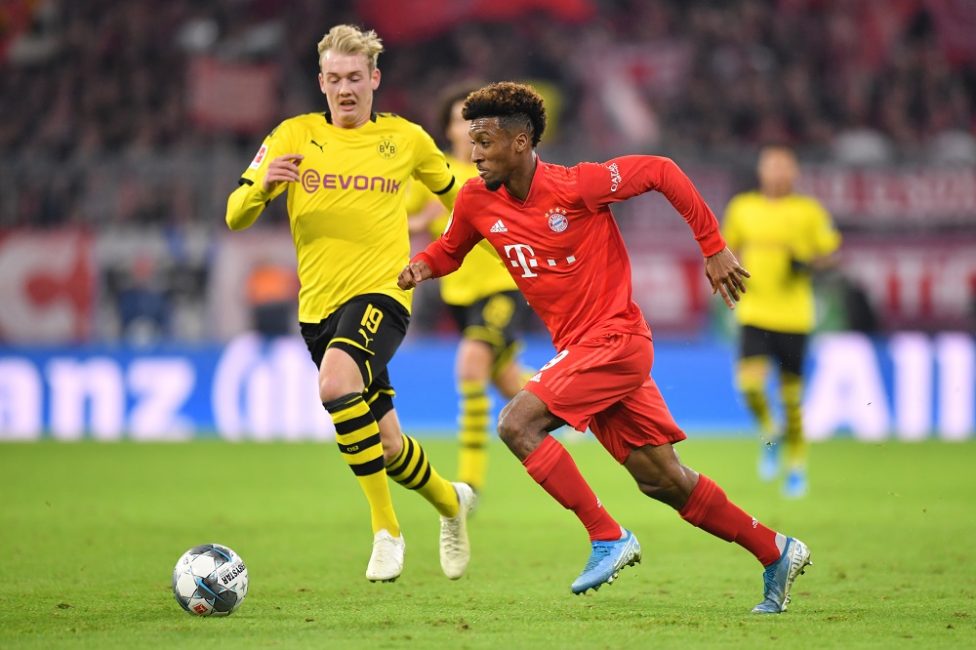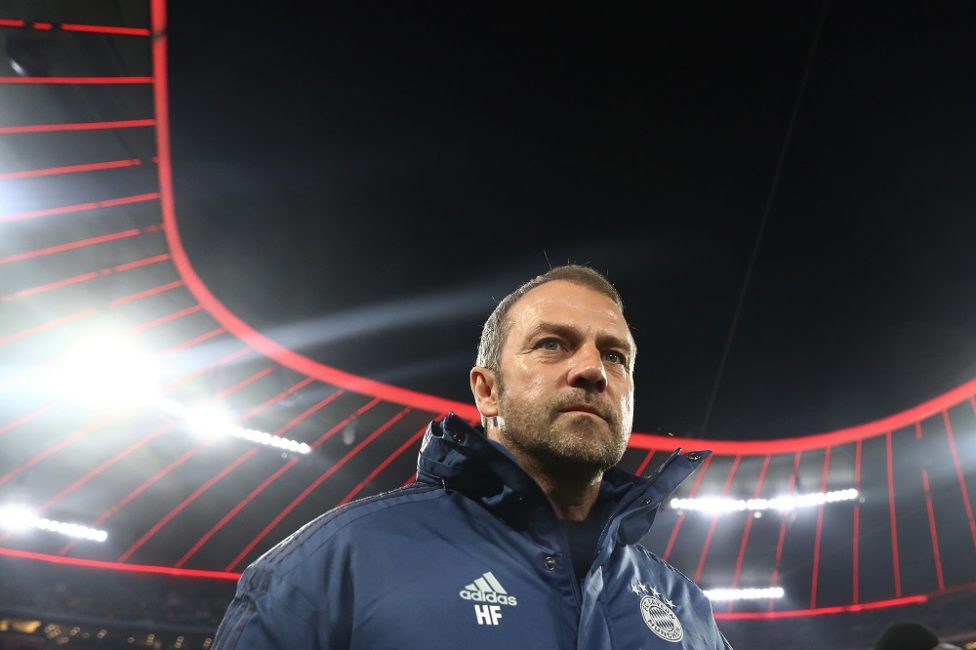Mailbag Roundtable: November 2019
Q1: Kovac Out
Our first question comes from @Andiminga on twitter: “What were the deciding factors that led to Kovac failing at Bayern?
Alex: How much time do we have? Let us keep it simple. Out of the many reasons for his failure I have picked the two that I believe were the most crucial. Mine is certainly neither an exhaustive nor definitive assessment and other people will find other points or put a different emphasis. Please feel invited to do so in the comments section!
1. Kovač had lost the dressing room. Several of the players more or less openly rebelled against him. This was probably mainly because his tactical approach to football did not fit with the expectations of the players and the way they had been used to playing under the previous coaches going back to van Gaal. Kovač favored a defensive setup based on stability by way of a deep defensive line behind a set of more venturous forward players much higher up the field. This must have been received as a mixed message by the players: keep a deep defensive structure to ensure defensive stability – but also be bold, attack high and be creative going forward at the same time. As a result, Bayern’s game was often caught in a netherworld, marked by large gaps between defense and offense with no link-up between the two parts to speak of and an overall inconclusiveness in most actions. It was a rare game when everyone on the pitch seemed to sing from the same hymn sheet. It was not that the players were intellectually or physically unable to implement Kovač’s ideas, they were loath to do so. They wanted dominance, they wanted possession, they wanted ball control, they wanted initiative. In short: they wanted Bayern to play like Bayern. Eventually, the mismatch between the ideas of the coach and the players began to tell and with every added degree of reluctance and resistance by the players Kovač edged closer to being history.

(Image: Alex Grimm/Bongarts/Getty Images)
2. Kovač got caught in the maelstrom of the grand finale of the Hoeneß vs. Rummenigge epos. No one who has cared to listen could look past the fact that the relationship between the two Bayern greats has deteriorated to the point of bitterness and mutual resentment. They still watch Bayern’s home games together at the Allianz Arena, but it is easy to tell especially from Hoeneß’s public statements that there has been an ever widening rift opening up between the two. In terms of the club, this means most prominently that both have not seen eye to eye with respect to most or even all of the personnel decisions in recent years. Ancelotti was a Rummenigge choice, Hoeneß was sceptical. Sporting director Hasan Salihamidžić was a compromise because neither Hoeneß (Max Eberl) nor Rummenigge (Philipp Lahm) could convince the other of their preference. Kovač was a Hoeneß choice, Rummenigge wanted Tuchel. Rummenigge also did not like it that Hoeneß insisted on trying to convince interim coach Jupp Heynckes to stay on for another season even though Heynckes repeatedly made it crystal clear that he would end his coaching career at the end of the 17/18 season. With respect to Kovač this meant that there was a proxy war carried out on his back. Rummenigge did not miss any opportunity to put pressure on him and to clearly signal his annoyance with the decision to hire him in the first place. Surely, the permanent quarrel about Kovač between Hoeneß and Rummenigge will not have gone unnoticed in the squad, and it will certainly have undermined his authority in the dressing room as well as his standing among the players. They knew that there was a coach who was not uniformly backed by the top and who always dangerously skirted around the edge of being sacked. This will have made it easier for them to maybe not put the utmost energy and most sincere effort into implementing his ideas on the pitch if they did not agree with them and to go over his head with their complaints about the way he wanted them to play.
Taken together, I believe what ultimately did for Kovač were the two mutually reinforcing factors that his players did not like his style of play AND that he did not have the requisite backing from the top a strong coach needs to assert his ideas. He was weak, so his players could get away with working to rule and voicing their discontent over his head, which in turn weekend him even more – and so on.
Let us see how much credit Hansi Flick will have.
Katrin: I think there were several factors that played an equally important role leading to Kovac’s departure in the end. He never was the number one choice for to become Bayern’s coach in the first place – I think that already says a lot. He was quite successful in Frankfurt but I think a lot of this success was based on the fact that most of the time, they were the underdogs. At Bayern, on the other hand, the expectations were obviously much higher than that and he failed to meet those expectations. When he was coaching Bayern, it always seemed like he didn’t have a clear plan – or if he had one, it wasn’t visible on the pitch. Bayern played mediocre at best when Kovac was at the helm, and even winning the double couldn’t hide that. The players also didn’t seem to develop any further under his leadership; they depended on their own individual skills instead. In comparison, when Pep Guardiola was coach, you could actually see them become better week by week, month by month. Having said that, I also think that it was a very difficult situation for Kovac. I don’t know if the players respected him enough, but the management also never seemed to back him 100%. It was definitely the right decision to part ways, but I’m not one of the many fans who were often vile and rude in their demands to sack the coach. I’m sorry it didn’t work out and wish him all the best.
Marc: I think the other two have hit on the major reasons behind this already. The poor run of form at the end was obviously the proverbial straw. After the Cologne match on September 21st through the Frankfurt match on November 2nd was about as bad as you could reasonably imagine, apart from a crazy 2nd half against Tottenham. Ignoring the Spurs outlier where they scored 5 second half goals, over that period they beat Paderborn (18th) 3-2, Union Berlin (11th) 2-1, Olympiacos 3-2 (last in group with 1 point) and Bochum (BL2 16th) 2-1, drew with Augsburg (15th) 2-2, lost to Hoffenheim (5th) 2-1 and got trounced by Frankfurt (9th) 5-1. That’s not exactly the creme-de-la-creme of opposition given that only 2 of those teams is even in the top half of the Bundesliga and they failed to keep a clean sheet against any of them. Perhaps most importantly, there were absolutely no signs of it turning around.
That said, this always seemed inevitable. I think the ultimate truth is that he was never the right coach for Bayern. His style does not suit the players currently employed by Bayern nor does it really align with most of the top clubs in world football. Bayern are not Frankfurt and what works for one doesn’t necessarily work for the other. Oddly, he never seemed to excel in the areas he was supposed to either. Coming in, we all expected that he would at least be good at communication (aka handling the media and getting along with the players) and would set the team up to be defensively stable. Neither of those things actually occurred. Some of the more bizarre, and frankly bewildering, statements since Trapattoni came out during his time in Bavaria. The defense actually got worse, which is admittedly not entirely his fault given the age and form of some of the defenders, but he undeniably had a major role to play. Lastly, as the others have mentioned, it was clear that he was never even the third choice, much less the first. Because of the posturing with Heynkes, indecision with Tuchel, unwillingness to make the leap with Nagelsmann…etc, they ended up in a situation where they quickly ran out of options and went with someone they had connections to and was potentially available. The whole situation was in many respects unfair to Kovac and I genuinely hope that he has a successful career ahead of him.
Q2: King Coman?
Our second question comes from @youplayawhat on twitter: Coman had been struggling under kovac but has looked like his old self in the last two matches under Flick. What do you think is responsible for the resurgence?
Alex: I can only speculate as much as the next guy. I believe there is an overall resurgence of performances in the whole squad. Coman might be a special beneficiary of this resurgence because the more attack-minded approach of Flick based on a high average positioning, aggressive gegenpressing and defending with a view to going forward suits his style of play. He is more involved and more involved in more interesting areas on the field, allowing him to bring to bear his unique mix of speed and technical skills. It could also be that he feels liberated now because he may have had a strained relationship with Niko Kovač and starts to enjoy his life as a footballer again. Lastly, it could also just be a coincidence that his return to form overlaps with Kovač’s dismissal as coach. Ultimately, it is probably a combination of the three.
Katrin: It’s quite normal to improve or become better when you feel appreciated. I believe that’s true in any job, not only on the football pitch. And Flick does seem to have a better way with the players, in the sense that he can connect with them better on a human, emotional level. I remember seeing photos of Flick motivating and laughing with Renato Sanches or comforting Javi Martínez when he was benched yet again. To have someone navigate difficult situations like this, to build trust again, and to do so with the necessary touch of sensitivity and tactfulness – it matters a lot.

(Image: Sebastian Widmann/Bongarts/Getty Images)
Marc: I agree with what both Alex and Katrin have said above but think there are a few more factors. Where he is getting the ball, who is available to him when he gets to the end line and Alphonso Davies current form are chief among them. Under Kovac, Coman was often getting the ball in positions where it was difficult to use his quickness to exploit the defender and provide service to his teamates. Too early, too late, too wide, too narrow…it always seemed like he was put in a position where he couldn’t make any headway.
Secondly, far too often, Lewandowski was the only player in the box to potentially get on his crosses. As good as the Pole is, it’s not that difficult to defend one player with 4 or 5 guys. In the last game especially, Goretzka, Muller and Gnabry were constantly moving around the penalty area providing more options for Coman.
Lastly, Davies run of form of late and his availability to Coman have clearly helped the Frenchman, in terms of options, when he gets in difficult positions. Much like Alaba and Lahm (later Kimmich) supported Ribery and Robben, things open up more when your wing backs provide support. Ultimately, it is likely all these reasons and more, but it’s good to see him making the impact we know he’s capable of.
Q3: Savior Flick?
Two matches into the Flick era and the Bayern fandom is already feeling a lot better about things. Is this feeling premature? What do you think are realistic expectations for this season, in each competition, at this point?
Alex: There are two questions in this. First, is the current excitement about Flick premature? I believe so, yes. It has been two games, the first one of which was not exactly a spectacle of brilliant football on Bayern’s part. The game against Dortmund was a highlight and one of the treats of the season so far, no doubt. For me, his ability to continue to turn a screw here and flick a switch there will determine how successful they are on the pitch and thereby how he is accepted in the dressing room. In other words, Flick will have to maintain a steady supply of small tactical tweaks and mental stimuli, as well as an appropriate apportionment of game time among his squad to keep his players engaged. As long as he is able to do this and none of the opposition has yet developed an effective counter strategy to what will solidify as Flick’s preferred style of play in the coming weeks, Bayern will continue to be successful to the point of invincibility in the Bundesliga. The real test for Flick will come when Bayern do not win maybe one or two matches in a row and initial signs of dissatisfaction manifest themselves, especially among those players who do not see as much game time as they hoped they would under the new coach. We will talk again then.
The second question is about the realistic expectations for the season. For the Bundesliga, as I have said, as long as Flick can keep the bandwagon rolling and his players on board, the sky is the limit. Bayern will be champions. As regards the two cup competitions (DFB Pokal and Champions League), I am a bit more cautious. This is less due to Bayern’s quality per se, but rather due to the nature of a cup competition based on knock-out games. In one or two matches over 90, 120, 180, or 210 minutes, anything can happen because chance-related factors such as current form, injuries, weather conditions, stadium atmosphere and so on have a much greater influence on the outcome than over the course of a 34 or 38 game season, where such factors tend to level out much more. Having said that, in the Champions League considering the rules of the draw, Bayern should be able to prevail in the round of 16. But from then on, they could meet anybody including Liverpool and ManCity so I would not hazard a guess. The DFB Pokal is a domestic tournament so Bayern’s potential opposition in the later rounds cannot possibly be better than upper Bundesliga quality. Despite my disclaimer about the importance of chance in a 90 minute game, I believe they will do business as usual and progress to the final in Berlin.

(Image: Alexander Hassenstein/Bongarts/Getty Images)
Katrin: I’m cautiously optimistic. Sure, Bayern won the last two games without conceding a goal, and the clash with Dortmund in particular gave fans much reason to hope that things will be better from now on. The team looked a lot like the Bayern we used to know: dominant, willing to go the extra mile, keeping a clean sheet. But it’s too early to say that this was indeed the turning point. If they continue this positive trend, however, I think Bayern should definitely finish among the top three this season in the Bundesliga, and maybe reach the quarter- or semifinals in the Champions League. For the DFB Pokal, it’s hard to make predictions. But of course, they could go all the way again.
Marc: As the others have already outlined, it’s FAR too early to make any real judgments on Flick. However, there are positive signs from both games under him given the limited amount of time he’s been in charge. The midfield feels relevant and used again. There is actually a link between the defense and offense, which is something that had been missing for far too long. The pressing has been better. The movement around the box was certainly better in the BVB match. Most importantly, they look more in control defensively. The back line and midfield have looked far more certain and comfortable when on the ball. Obviously this could all be coincidence and/or a burst of energy from the change in coach, not to mention Olympiacos didn’t have the most threatening game plan and Dortmund are in poor form, but nevertheless there have certainly been positive signs.
In terms of the major competitions this season, I’d say the odds have improved after the change in manager. That’s not to say they couldn’t win with Kovac, obviously they did last season, but the team clearly needed a change. Assuming that they get back to an even average level of play, the Bundesliga is likely, the Pokal is achievable and the Champions League is not impossible, though remains extremely unlikely. As the others have said, draw, injuries and many other factors impact the Champions League too much to make any real guess, but they at least have a chance to make a run.









